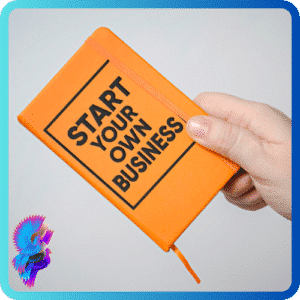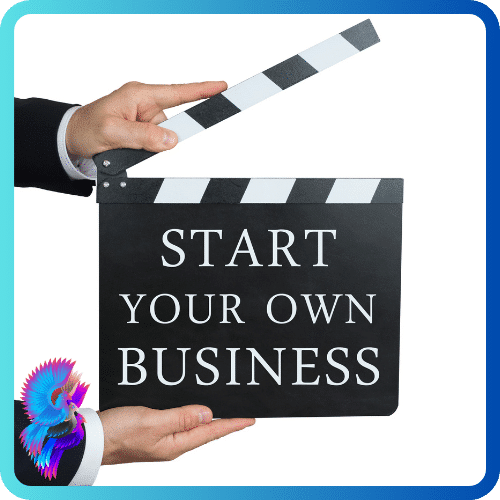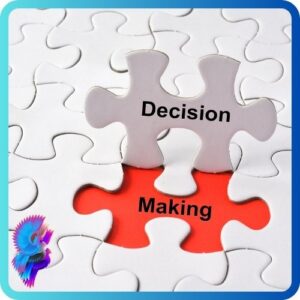Advertisements
Do you desire to start your own business?
The majority of us eventually reach this decision for a variety of reasons, including the desire to launch our own business.
Which of the following describes you?
-
Liberation from a daily routine.
-
achieving my objectives when I choose.
-
enhance the quality of my life.
-
I need room to be creative.
-
I want to utilize all of my abilities, information, and education.
-
I have a good or useful concept or service to provide.
-
I’ll get to spend more time with my family.
-
I will not enforce a dress code.
-
Business owners can benefit from favorable tax advantages.
-
Being a Type B, I function best alone.
-
I desire financial independence.
-
I want to be in charge of decisions.
All of the aforementioned factors are valid justifications for wanting to start your own business.
The problem is that not many individuals consider each step in detail.
Planning a business involves seven stages:
-
Investigation Phase.
-
Planning Phase.
-
Start-up Phase.
-
Operating/Monitoring Phase.
-
Problem/Challenge Resolution Phases.
-
Renewal/Expansion Phase.
-
Selling, Transferring, and Retirement Phase.
In my next paragraphs, we’ll review all of the aforementioned topics as “Business Basics” primers to start your own business.
You examine yourself and your business choices during the investigation Phase.
The first thing you need to figure out is which personality type you are, since some jobs are better suited to certain personality types.
Duty Performers:
A serious, calm, meticulous, organized, matter-of-fact, rational, practical, and dependable introverted personality They accept responsibility, are well organized, are aware of what has to be done, and diligently pursue it while ignoring distractions.
20% of this group go on to become accountants because they are meticulous calculators.
The Mechanics:
These are cool observers who are introverts as well.
They are calm and reserved, curiously study and examine life, and occasionally show surprising creative humor.
Their typical areas of interest include cause and effect, the workings of machines, and the logical arrangement of data.
With roughly 10% going into farming, they are typically handymen, mechanics, or craftspeople.
The Actors:
These individuals are extroverts who excel at solving problems on the spot, don’t stress, appreciate whatever comes their way, and are often conservative in their ideals.
They often enjoy sports and mechanical things while disliking lengthy explanations.
They perform best when given “real” objects that can be touched, worked on, disassembled, or assembled.
10% of this kind pursue careers in marketing or become entrepreneurs.
The Managers:
These people belong to another extrovert category and are strong, direct, and leaders in activities.
They are often good at anything that calls for deliberation and intellectual conversation, such as public speaking.
They often have a wealth of information and like expanding it.
Sometimes they may come out as more upbeat and certain than their level of expertise in the subject would suggest.
They are sometimes referred to as “judgers” and “thinkers,” and 21% of them end up working in the judicial system.
Going into detail about each personality type would be much too difficult, but the list below should give you an idea of the roles that each personality type could play to advise you in which area you should start your own business.
In addition to the broad types we discussed, below are several that are simply divided into introverted and extroverted personalities.
Introverts choose careers that satisfy them:
- Nurturers.
- Guardians.
- Artists.
- Scientists.
- Protectors.
- Idealists.
Extroverts are usually:
- Performers.
- Visionaries.
- The Inspirers.
- Givers.
- Caregivers.
In the investigation phase second stage, your business choices are examined.
Think about the following factors while deciding to start your own business:
- Do you prefer using your hands, your intellect, or both when working?
- Does it matter if you work inside or outside?
- Do you excel at arithmetic, writing, riddles, plans, installations, or repairs?
- What do you enjoy? What interests you?
- Do you prefer working independently or as a team?
- Do you like to make plans or attend events?
- Do you prefer computers or machines?
- Do you enjoy operating a car or other machinery?
- Do you enjoy taking photos, giving or attending performances, collecting or displaying objects, or traveling?
- Are you strong, big, or small?
Make a list of your preferences.
Keep a journal of your business-related activities and assign a number of stars (1–5) to each item according to your level of interest.
Then make a list of your opportunities, worries, and weaknesses.
After accomplishing all of that, you need to have a list of potential companies that are ideal for you.
The “candidate businesses” can then be listed and rated on a scale of 1 to 5 according to your own set of criteria.
Some considerations can include whether the project is doable, inexpensive to start, fulfills my goals, would be profitable, has a “niche” market with existing clients, or will provide residual revenue, to name a few.
By the time you’ve finished, you really ought to think about going to your mentor or the S.C.O.R.E. branch in your area to discuss your strategy with them.
Would you like to learn more about how to start your own business?
Here is an Approach to Starting Your Own Business!
Advertisements
























